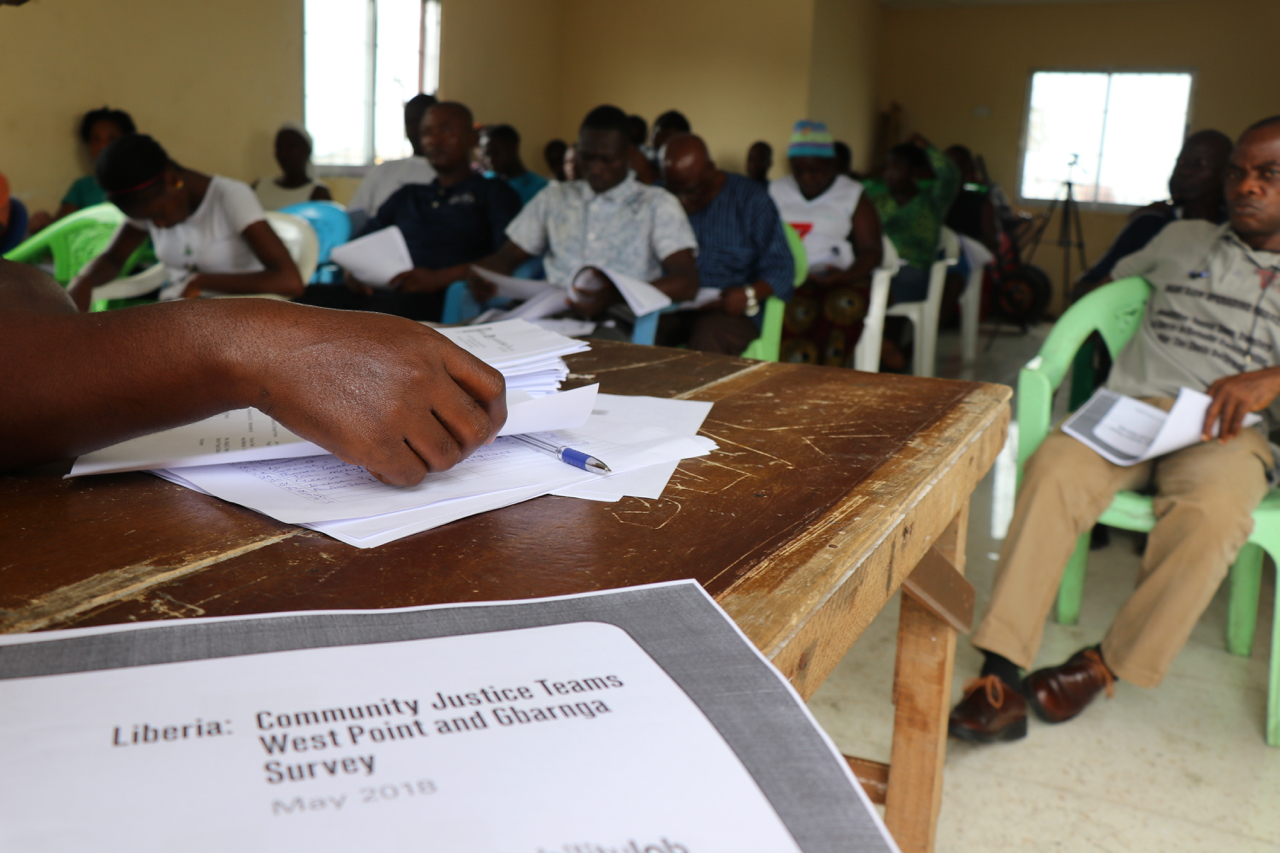NEWS
July 10, 2018

IN BRIEF
Family feuds cause the lion’s share of disputes in four poor, urban neighborhoods in Liberia, according to a survey by the Accountability Lab’s new Community Justice Teams project. The survey underscores the challenge of improving security in these crowded, multi-ethnic zones, where confidence in law enforcement runs low and the majority of people feel threatened by violence. Less than 20% of respondents feel safe from violence or physical threats in their communities, the survey found. Meanwhile, more than 40% of respondents ranked the family as the greatest source of conflict. Roughly the same share of people cited financial cost as [...]
SHARE
Family feuds cause the lion’s share of disputes in four poor, urban neighborhoods in Liberia, according to a survey by the Accountability Lab’s new Community Justice Teams project.
The survey underscores the challenge of improving security in these crowded, multi-ethnic zones, where confidence in law enforcement runs low and the majority of people feel threatened by violence.
Less than 20% of respondents feel safe from violence or physical threats in their communities, the survey found. Meanwhile, more than 40% of respondents ranked the family as the greatest source of conflict. Roughly the same share of people cited financial cost as the primary obstacle to justice in their communities.
Resolving disputes could be tricky when people may be reluctant to report their family members to third parties, our analysis of the survey results found. Meanwhile, people may be reluctant to pursue justice if they believe it will ruin them financially.
In post-conflict Liberia, internally displaced people and returning refugees settled in droves in and around Liberia’s major cities. Given the high density and very low income of these populations, disputes are frequent. Yet faith in the formal justice system is weak, with the judiciary and the police recently ranked as the most corrupt set of institutions in the country. Moreover, the traditional justice mechanisms common to rural areas are often absent because of the more transient, multi-ethnic nature of these communities.
The Accountability Lab has been working with the Monrovia-based Citizens Bureau to train a group of residents from Logan Town to resolve conflicts before they reach the point of violence. With the support of the United Nations Development Program and the United Nations Mission in Liberia, the Lab has scaled up these community justice teams, or CJTs, to three nearby communities: West Point in Monrovia; Kokoyah Road in Gbarnga; and Bassa Community in Kakata.
The CJTs carried out the survey in April and May in order to gauge baseline sentiment about justice and personal security in these four neighborhoods, which together represent around 200,000 people, or almost 5% of the Liberian population. Survey results will be used to track the project’s success and to generate simple infographics that CJTs can use to discuss justice issues with local residents.
A major goal: to assist stakeholders seeking to strengthen the rule of law in Liberia. To that end, a Lab fellow, Lontum Edwin Nchadze, prepared a detailed report on the survey’s findings. Nchadze is a 2017 Mandela Washington Fellow in Public Policy Management at Georgia State University. Read the full report here.

